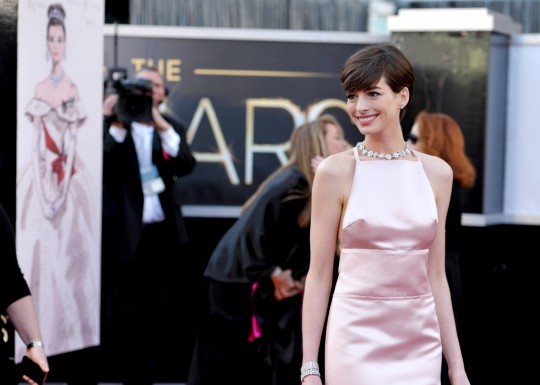The Washington Post's film critic, Ann Hornaday, complained yesterday that the discussions surrounding this year's Oscar nominees are less concerned with art and more concerned with what a movie is "about." "The tenor of the commentary," Hornaday wrote, "has often been so parochial and painfully literalistic that it has seemed as if the writers have been poring over a partisan tract, comparing and contrasting PhD theses or dissecting a psychological text — anything but watching a movie."
This is not to say that issues of politics and ideology have no place when discussing the medium of motion pictures. Indeed, Hornaday herself has been known to dabble in such rabble rousing herself, suggesting that the oeuvre of Seth Rogen helped contribute to a mass shooting last year. The problem comes when we conflate the two discussions, when we value a movie because it tackles a topic that is "historically important" over its artistic achievements, when we suggest that because it hews to the wrong vision of the world we should reject rewarding it.
Now, to be fair, this degradation in discourse is not really the fault of your average critic or your Oscar prognosticators or even your Hot Take Manufacturer; as Hornaday notes, the studios and the distributors need to shoulder their share of the blame. Harvey Weinstein, in particular, has quite a bit of splainin' to do:
All too often, the films’ distributors are complicit in elevating content over form. None has so masterfully mastered that dark art as Harvey Weinstein, who has become an expert in mining his movies for even the flimsiest connection to a social or political hot button, then husbanding a public-service issue campaign to a savvy marketing push. Weinstein’s "Honor this man, honor this movie" ads and billboards on behalf of "The Imitation Game" — linking a best picture vote for the movie to redressing homophobia — is reminiscent of the impresario’s past efforts to hitch "Silver Linings Playbook" to mental health legislation and "Philomena" to adoption reform.
If Washington, D.C., is Hollywood for ugly people, then Oscar season turns Hollywood into Washington, D.C., for stupid people. Oscar campaigns are less about the relative artistic merits of a film that about the narrative that can be crafted: "it's time to honor a film with a gay leading character!"; "it's a crime that the Oscars have never properly rewarded a film made by a black man!"; "we need to show middle America that we're down with rewarding a conservative icon!" The fights devolve into a toxic mixture of tokenism and pandering to special interest groups, into a series of takedowns aimed at showing why one film is more PROBLEMATIC than another, into a ludicrous fit of historical nitpicking that the industry would sneer at any other time of the year. In all seriousness: An awards show ostensibly dedicated to rewarding the year's best works of art whose voters allow themselves to be swayed by an op-ed written by some nobody functionary in a long-ago presidency isn't worth the fake gold its trophies are painted in.
Again: I love the Oscars. But as long as the Academy Award season better resembles an election for city council than an appreciation of great art, there's no reason to take who wins best picture any more seriously than who wins "best dressed" from the Fashion Police.
